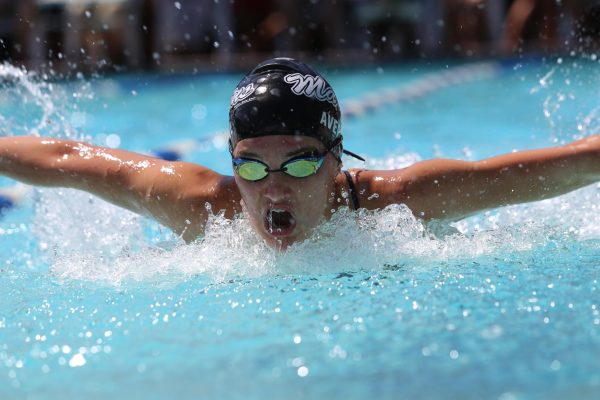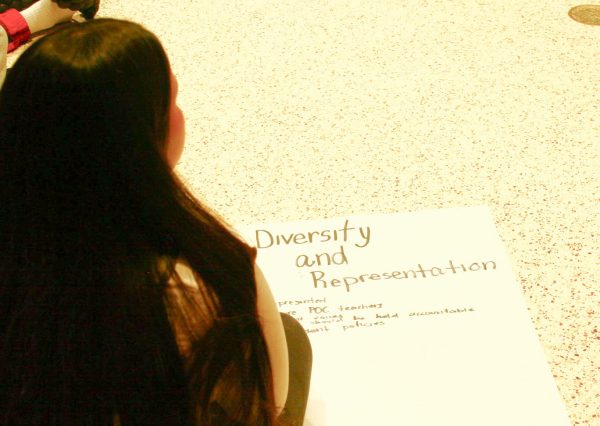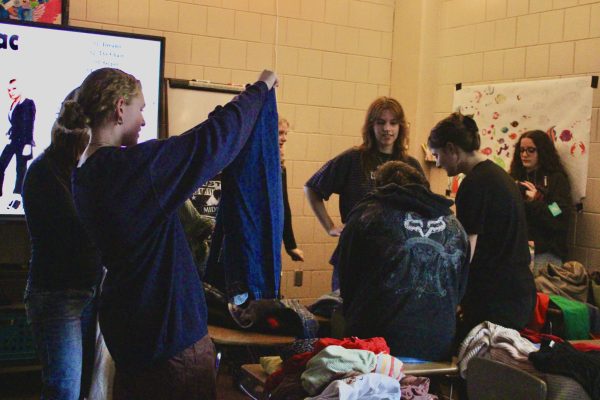Stereotype surrounding college athletes is inaccurate
March 3, 2014
The stereotype of stupid college athletes needs to stop. College athletes are often the most athletic, as well as smartest of their peers. The stereotype that college athletes are all dumb jocks is widely inaccurate.
Athletes across the nation, specifically college age athletes, have been gunned down by propaganda that they are athletes before students – dumb jock syndrome. Depicted by Hollywood movie stereotypes, namely football, basketball and hockey players, college athletes seem to struggle with holding normal conversations, god forbid passing a class. Although a small percentage are below average when it comes to academics, the majority still stands at or well above the nation’s academic expectations.
The National Collegiate Athletic Association (NCAA) has recently stated, “African-American males who are student-athletes are 10 percent more likely to graduate.” Therefore, participating in a college level sport, while enduring college, is likely to increase chances of graduating.
A study from the University of Kansas has shown that 98 percent of athletes at Kansas graduated last year, opposed to the 90 percent of non-athletes. Athletes are often creative, outside-the-box thinkers. When asked to solve a problem, they are able to make snap decisions quickly, and effectively thanks to their enhanced judgement and decision making from participating in highly competitive sporting events.
As it is known, sports make our muscles grow bigger.However, growth of the brain is often overlooked when analyzing athletes. Simply participating in sports has been proven to enhance concentration and cause athletes to have a better understanding of classroom material.
Proven by clinical neurophysiologists from Germany’s Ruhr-University Bochum (RUB), participating in sporting events increases gray matter in the brain, thus causing an increase in cognitive ability thanks to faster processing of information by neuroreceptors and therefore, a more efficient, effective brain.
“The RUB researchers found that the endurance athletes had more gray matter in both the Spinal Muscular Atrophy (SMA) and the hippocampus than the non-athletes,” said project head Professor Tobias Schmidt-Wilcke, head of Bochum’s Research Department of Neuroscience.
College athletes are under fire due to the stereotype of being less than academically gifted. Although participating in sporting events has been proven to increase brain capability, not all athletes are putting that extra brain power to good use.
A CNN investigation found that 7-18 percent of college football and basketball players can only comprehend literature at a fifth grade level. Yes, some college athletes may put an unhealthy amount of focus on their sport rather than their education, but the majority are doing just fine managing their education, and their athletic life.
Performing highly on the court, field, or ice, college athletes also strive to improve their game in the classroom. Although a small percent of athletes are below average, that certainly does not mean the rest are. Athletes are rarely given any sort of break when it comes to academics. They are fully expected to participate, and achieve highly in academics and their sport alike. So whether taking the game winning shot, or filling out a life changing final exam, college athletes will deliver.












Jasmine Hearne • Apr 1, 2014 at 11:29 pm
This was a great article Quentin! Your introduction was strong and straight to the point and you had a well structured argument. I loved your extensive use of facts and support. Although you argue that college athletes do not fit the stereotype of a dumb jock, you could possible mention how we can remove this stereotype from society? Is it the media’s responsibility to correctly portray and enforce the fact that most college athletes are academically gifted?
Ross Stickler • Apr 1, 2014 at 10:22 pm
This is relatable to a lot of people who watch TV shows involving sports players. For example, “Blue Mountain State” is about a football team with a dumb jock as their quarterback. This stereotype will be hard to break. The graphic for this article does not match the theme of this article very well either.